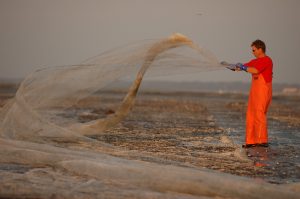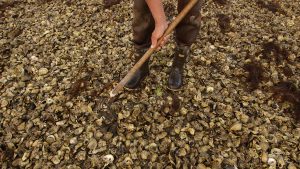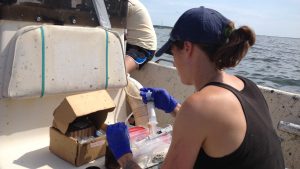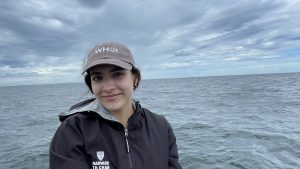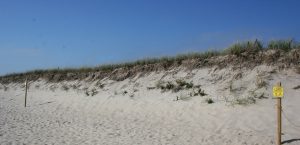Search results for: Breaking%20News%20cleantalkorg2.ru%20Latest%20News%20Breaking%20News%20Live%20Updates%20Share%20Market%20bbc%20news%20US%20News%20Stock%20Market
Science at Our Shores: Woods Hole Sea Grant Research Symposium
Friday, March 6, 2020 1 p.m. – 4:30 p.m. Redfield Auditorium Woods Hole, MA Researchers explain the work they’re doing to investigate pressing environmental and coastal issues. Showcasing recently completed and newly funded Sea Grant projects on shoreline resilience, sustainable fisheries, and sharks and microplastics in our waters, among others. This event is free and…
Read MoreKinematic and Dynamic Estimates from Electromagnetic Current Meter Data
Kinematic and Dynamic Estimates from Electromagnetic Current Meter Data Aubrey, D.G. and J.H. Trowbridge Journal of Geophysical Research, Vol. 90, No. C5, pp. 9137-9146, 1985 WHOI-R-85-006 Comprehensive laboratory measurements and a thorough review of applicable literature show that electromagnetic current meters (manufactured by Marsh-McBurney, Inc.) are adequate for many kinematic measurements but may lead to…
Read MoreEnjoying Oysters Safely in Massachusetts
Each year, millions of fresh raw oysters are consumed in Massachusetts, most of them in the warm summer months. During that time, aquaculturists in the Commonwealth take extra precautions to safeguard their harvests from the heat, include icing oysters at the time of harvest – a step that can double or triple the weight of…
Read MoreUnderstanding the Waquoit Bay Ecosystem
A Q&A with Sarah Foster Sarah Foster is a Boston University graduate student doing her dissertation research in Waquoit Bay (Cape Cod, Massachusetts). A biogeochemist, Sarah investigates the impact hypoxia, or low oxygen, in the water has on crucial functions within Waquoit Bay’s ecosystem. She recently published research she and her co-author, Wally Fulweiler conducted in…
Read MoreThe Swimming Behavior of Larval Oysters
Jeanette Wheeler (right) and WHOI Summer Student Fellow Elaine Luo used a turbulence tank to study the swimming behavior of oyster larvae. Photo by Tom Kleindinst, WHOI Oysters are a species of profound economic and ecological importance, as they represent a hundred million dollar per year aquaculture and fishing industry in the U.S. and are…
Read MoreThe First Leap: One O-STEAM fellow’s experience
Questions swirled in my head: “Am I qualified enough? Will my application stand out? What if I don’t get accepted?” As I sat down to revise my O-STEAM application for the last time, a wave of anxiety washed over me.
Read MoreControl of Predators on Cultured Shellfish: Exclusion Strategies
Control of Predators on Cultured Shellfish: Exclusion Strategies Leavitt, D.F. and W.P. Burt NRAC Publication No. 00-007, 4 pp., 2000 WHOI-G-00-008
Read MoreRapid Formation and Degradation of Barrier Spits in Areas with Low Rates of Littoral Drift
Rapid Formation and Degradation of Barrier Spits in Areas with Low Rates of Littoral Drift Aubrey, D.G. and A.G. Gaines Jr. Marine Geology, Vol. 49, pp. 257-278, 1982 WHOI-R-82-018 Three possible mechanisms cause barrier spits to elongate; two are generally known, while a third is presented in this paper. The most commonly cited mechanism for…
Read MoreThe Coupling Between Harbor Seiches at Palawan Island and Sulu Sea Internal Solitons
The Coupling Between Harbor Seiches at Palawan Island and Sulu Sea Internal Solitons Giese, G.S., D. Chapman, and M. Goud Collins Journal of Physical Oceanography, Vol. 28, pp. 2418-2426, 1998 WHOI-R-98-006
Read MoreDune Poster Art Contest
Dune Sign Art Contest for Massachusetts K-12 Students Dunes play a critical role in maintaining a healthy coastal ecosystem, so it’s important to protect them. The Woods Hole Sea Grant student art contest was held Jan. – March 2022 to solicit new artwork for our dune signs. Winning artwork was selected in three categories: ℘ …
Read More
